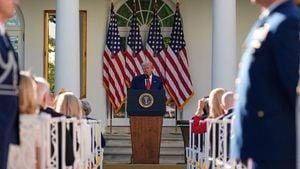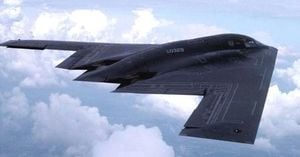OpenAI has recently secured $6.6 billion, marking the largest single venture capital raise ever, enabling it to solidify its dominance within the rapidly growing and competitive field of artificial intelligence (AI). This influx of cash, led by Joshua Kushner's Thrive Capital and joined by notable backers such as Microsoft, Nvidia, and SoftBank, is poised to fuel the ambitions of the company renowned for its ChatGPT language model.
Despite the success of this funding round, analysts caution it may not be sufficient for OpenAI to maintain its competitive edge against the deep pockets of its primary rivals, especially Google, which generates billions in profits annually. These contrasting economic positions highlight the disparities within the AI sector.
The recent financial boost arrives at a time when the race for generative AI capabilities is intensifying but also becoming increasingly costly. Following its last significant investment from Microsoft nearly two years ago, OpenAI finds itself under pressure to continuously attract fresh capital to support the astronomical operational costs linked to training large language models.
OpenAI’s expenses are largely driven by three main factors: the colossal computing power required for training models, recurrent operational costs for running cloud-based services like ChatGPT, and the necessity to retain top talent amid mounting competition. With its employee count having more than doubled over the past year, OpenAI's workforce expansion has added to its financial burdens.
To put the financials in perspective, OpenAI anticipates bringing in $3.7 billion this year, progressing to projected revenues of $11.6 billion next year. Despite these hopeful projections, the company is also on track to incur substantial losses—estimated around $5 billion this year alone—highlighting the precarious balance between rapid growth and financial sustainability.
OpenAI’s latest funding round surpasses the $6 billion raised by Elon Musk's startup, xAI, and emphasizes the competitive nature of the market. Notably, it also reflects how difficult it has become for new entrants to establish themselves against considerable established players. A recent exodus of startups from the AI model-building race has even prompted some industry commentators to suggest potential monopolistic tendencies within the sector.
Take, for example, the AI startup Character.AI, which recently announced its exit from the race to develop large language models. The interim CEO, Dominic Perella, cited the prohibitive costs necessary to compete against juggernauts like OpenAI and Google, as the financial demands outweigh the potential gains.
Character.AI, armed with $150 million last year at a valuation of $1 billion, could not keep pace. They have opted to pivot toward utilizing existing models rather than pouring resources to rival incumbents. This strategic shift mirrors broader trends across the industry as many newer firms find themselves outmatched and out-resourced.
Interestingly, this trend isn’t entirely new. Over the past year, major tech companies have begun forming strategic partnerships with AI startups, employing different models of acquisition. For example, Google brought back former Character.AI cofounders under the guise of maintaining talent, which effectively leaves smaller companies with little room to maneuver.
Critics of this “acqui-hire” strategy argue this may be more about staving off competition rather than fostering innovation. Merging with major corporations often stifles smaller players' independent growth potential, inevitably thinning the competition around model development and leading to more market control by fewer companies.
The fact remains, larger firms like Nvidia also stand as formidable competitors, with their financial might allowing them to invest heavily and advance rapidly within the AI development arena. Nvidia, for example, has recently unveiled new models intended to compete directly with OpenAI’s offerings, showcasing their cutting-edge technology and vast resources.
Then there's OpenAI’s proactive — and somewhat controversial — measures to control its competitive environment. Reports indicate CEO Sam Altman has urged investors to steer clear of supporting rival firms including Anthropic and Elon Musk's xAI. OpenAI's request, more of a proposed guideline than any form of contractual obligation, raises eyebrows within industry circles. It seems the company is trying to prevent its investors from simultaneously nurturing its competition.
This restrictive approach may deter investors, but it is indicative of the increasing seriousness with which OpenAI pursues market dominance. By cutting out potential investor threats, OpenAI aims for greater control not only over its operations but also over the playing field at large.
One notable consequence of this dynamic is the way downstream companies are responding. For many, rather than investing heavily to create their proprietary models, leveraging APIs from model developers like OpenAI has proven to be both cost-effective and expedient. This trend can be seen as understandable from the consumer perspective, but it leaves many startups unable to sustain themselves amid such shifts.
Looking at the larger picture, OpenAI's combination of financial leverage, competitive strategy, and relentless pursuit of technological excellence can be viewed as both strategic strength and potential vulnerability. If investors continue to tighten the purse strings on smaller companies, OpenAI could be left with fewer competitors down the line, which could eventually lead to less innovation and choice for the end consumers.
The growing divide between wealthier tech powerhouses and their less fortunate counterparts must not go unnoticed. The future viability of various AI startups appears increasingly precarious, with many folding or redefining their missions due to financial strain or lack of support.
Meanwhile, the stakes will continue climbing as competition intensifies, and big players move to secure contracts with high-value clients. Their financial health will be reliant on successful and scalable AI models which seem to attract endless investment, often at the expense of smaller, agile competitors. The pervasive question remains: How long can this competitive dynamic persist before corrective measures arise?
For OpenAI, the $6.6 billion investment may encourage growth and innovation, but success and profitability depend on its ability to navigate these tumultuous waters filled with both opportunity and peril. With big dreams and lofty ambitions, OpenAI must now strive to convert its financial resources and significant valuation against competitors with unmatched power and influence within the AI development arena.
It will be fascinating to watch how this scenario plays out as more companies enter the fray or choose instead to bow out entirely. The rapid evolution within AI, driven by vast resources and fierce competition, offers both challenges and potential triumphs for those bold enough to stand their ground.



